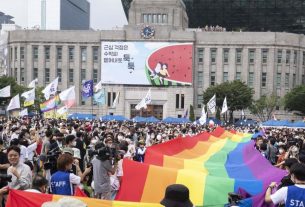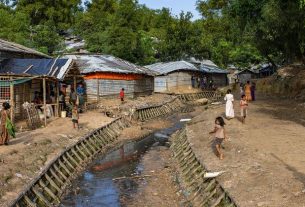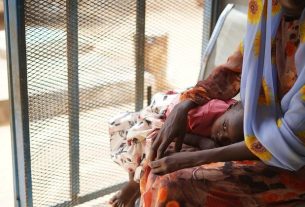(Geneva) – United Nations member countries should press the Cambodian government on its human rights abuses, including targeting political opponents and dissidents, Human Rights Watch said today. On May 8, 2024, Cambodia will appear before the UN Human Rights Council in Geneva for the fourth Universal Periodic Review of human rights conditions in the country.
Since its 2019 review, when Cambodia accepted 173 out of 198 recommendations received and took note of 25 others, the government has failed to address those commitments and the human rights situation in the country has worsened significantly. Human Rights Watch, in its submission to the Human Rights Council, said that the government had continued to violate the rights of those critical of the government, including in the months leading up to the UN review.
“Since its last UN review in 2019, Cambodia has become further entrenched as an essentially single-party state without meaningful elections, no media freedom, and a ruling party-controlled judiciary,” said Bryony Lau, deputy Asia director at Human Rights Watch. “Countries at the Human Rights Council should condemn the denial of fundamental freedoms in Cambodia and press the government to immediately adopt real reforms.”
On January 30, the Phnom Penh appeals court denied the request of the Cambodian political opposition leader Kem Sokha to review the terms of his home detention. Sokha, 70, who was sentenced on March 3, 2023, to a 27-year term on a politically motivated treason conviction, must continue to seek the approval of the prosecutor’s office for his defense lawyers to visit him.
The authorities have arrested 11 political opposition figures since the beginning of 2024 on politically motivated forgery charges in the lead-up to the scheduled May 26 local elections.
On April 5, police in Phnom Penh arrested three opposition activists from the Khmer Will Party and the Candlelight Party for allegedly forging reserved candidate lists. On April 9, two candidates for the district election and a Candlelight Party provincial party chief were also arrested for allegedly forging candidate lists. And on April 28, plain clothes police arrested a vice chairman of the Candlelight Party’s executive committee at his home and charged him with using forged documents. All seven remain in pretrial detention and face up to 10 years in prison if convicted.
On May 3, Cambodia’s Supreme Court upheld the baseless conviction against Chhim Sithar, leader of Labor Rights Supported Union of Khmer Employees of NagaWorld, and seven other union activists, with two receiving suspended sentences and sentences between one and two years for the others. The decision prolongs Sithar’s current incarceration and risks the immediate imprisonment of an additional five union members.
Hopes that the human rights situation in the country would improve after Hun Sen, who had been prime minister since 1985, on August 22 handed power over to his son, now Prime Minister Hun Manet, have not been borne out, Human Rights Watch said. Hun Sen remains head of the ruling Cambodian People’s Party and became Senate president on April 3. Human Rights Watch documented a similar pattern of intimidation and threats against opposition politicians ahead of the Senate elections in February. Cambodian government officials offered them bribes and other unlawful inducements to withhold their support from opposition candidates.
The government has not only failed to implement the recommendations it accepted during its last UN review with respect to democratic space, elections, and political freedoms, but it has continued to restrict free speech and media, labor unions and labor rights, and civil society.
The Cambodian government’s UN submission claims that legal reforms have improved human rights, but recent legislative efforts have proven to be tools for repression. For example, the government is currently seeking to adopt a cybercrime law that contains vague language, broad categories of prosecutable speech, and lacks protections for citizens, falling far short of international standards. The law also raises the criminal penalty on defamation to include jail time when it previously only included a fine.
A “false information” clause contains an overly broad definition of harming national defense and security, among other violations, with penalties of from three to five years in prison and up to a US$25,000 fine. Civil society and media groups sharply criticized earlier drafts of the law for restricting the rights to privacy and free expression and said the drafting process lacked inclusivity, transparency, and public participation.
“The UN Human Rights Council need only to look at the continued deterioration of the human rights situation to conclude that the Cambodian government is making empty promises,” Lau said. “UN member countries should urge the Cambodian government to ensure immediate, concrete, and meaningful reforms to allow Cambodians to exercise their basic rights.”



